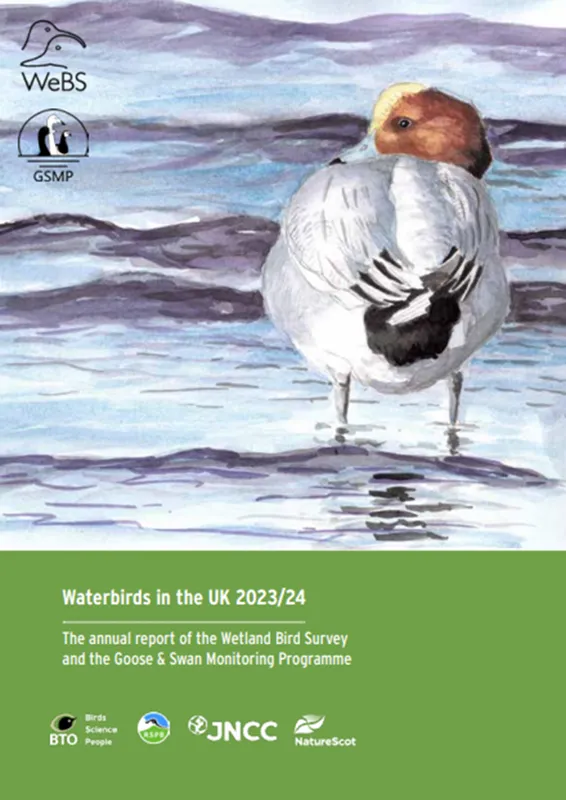Sign up to our free, monthly e-newsletter and be the first to hear our exciting news about our research discoveries, special events, training courses, volunteering, latest blogs and appeals. Read our blog articles and press releases too.
Featured news
The latest data from the WeBS report
The Wetland Bird Survey (WeBS) monitors the UK's internationally important non-breeding waterbirds, with volunteers and surveyors counting wetland sites once per month. This provides vital bird population data as well as trends in abundance and distribution, information which underpins the network of sites legally protected for their importance to wintering waterbirds.
Waterbirds in the UK presents the results of the annual WeBS report. It is a comprehensive source of information on the current status and distribution of waterbirds in the UK for those interested in the conservation of the populations of these species and the wetland sites they use.

Read the latest BBS report
The 2024 Breeding Bird Survey Report highlights the continuing decline of some farmland species and more recent declines of woodland birds, at least in England. In Scotland, there is a focus on upland birds, where an all-species indicator using BBS data shows a 20% decline since 1994.
In Wales, there are mixed fortunes, with species like House Sparrow bucking the downward trend seen in England, whilst Curlew are in severe decline, as they are elsewhere in the UK. Some songbirds in Northern Ireland, such as Blackbird, are doing comparatively well compared to the wider UK trend.
